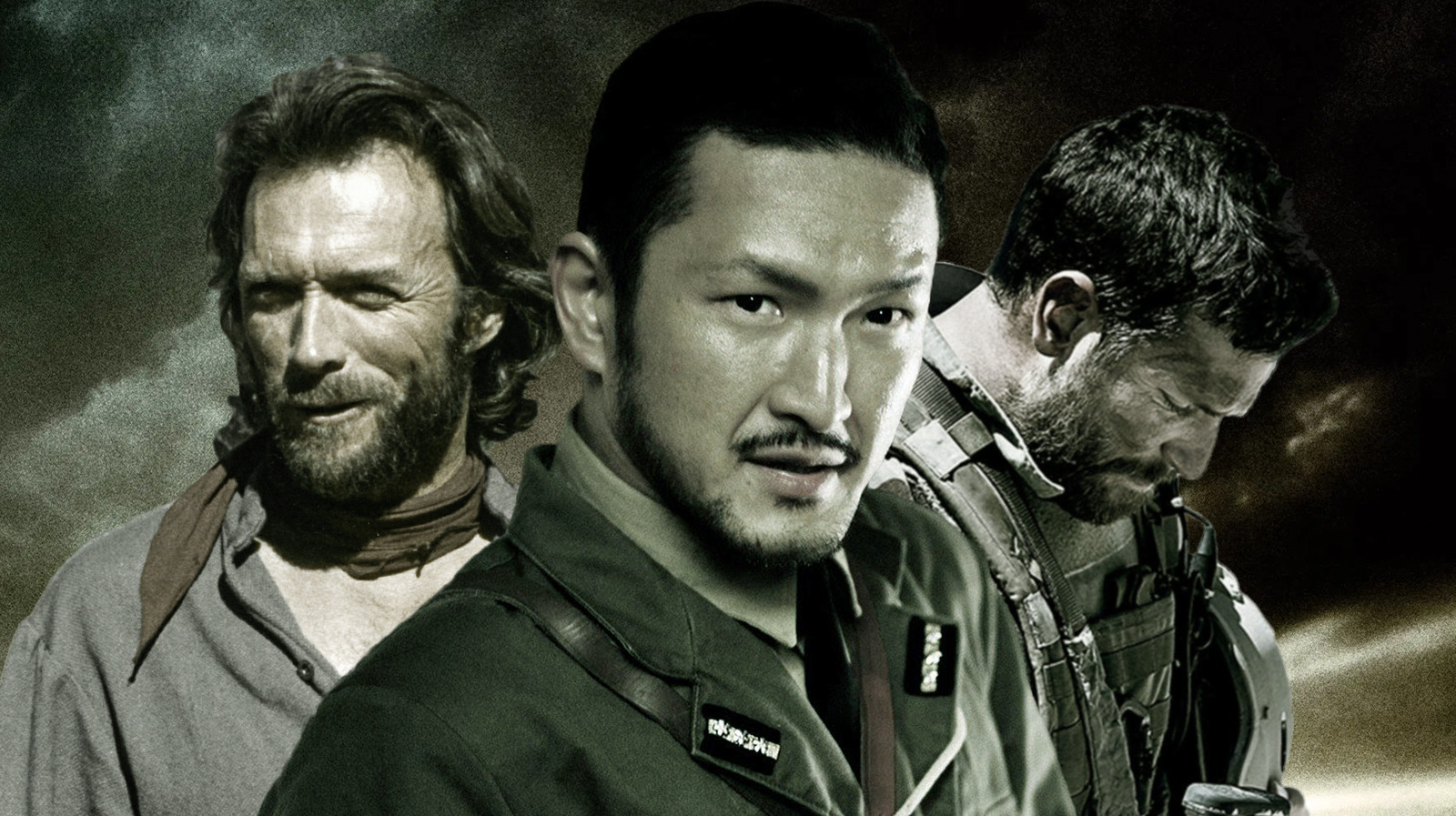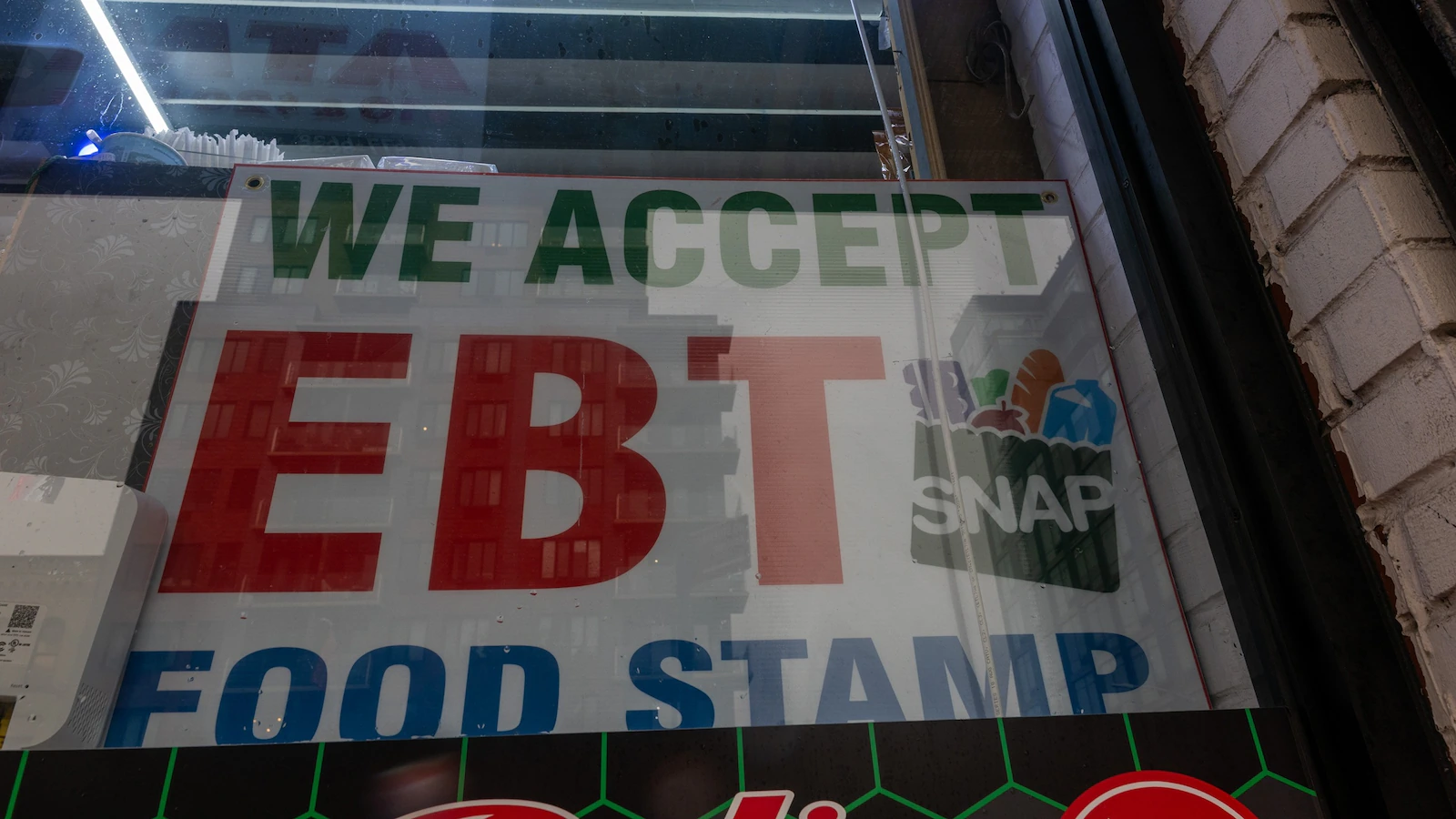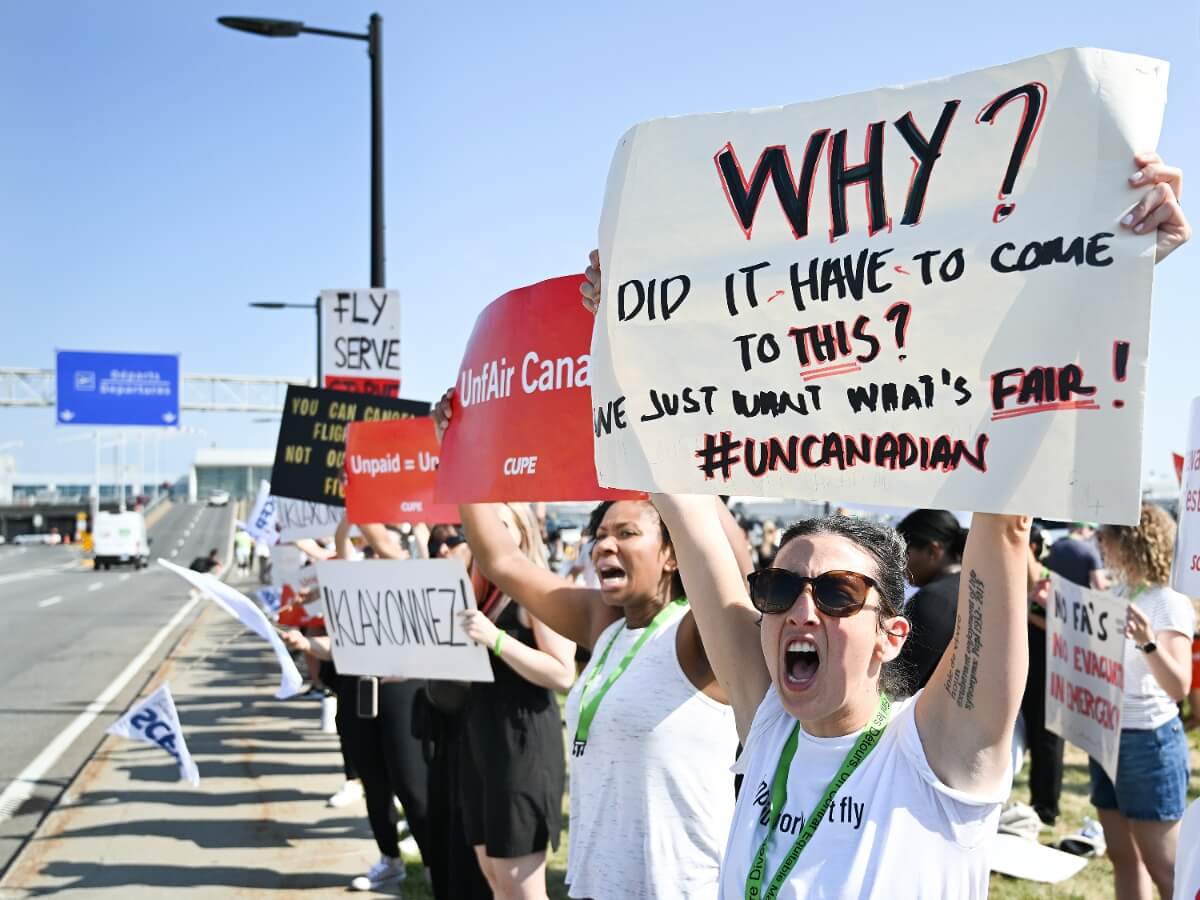Copyright /FILM

Clint Eastwood has had one of the most remarkable careers in Hollywood. He first started acting in the 1950s before really rising to prominence with 1964's "A Fistful of Dollars," playing a stoic anti-hero that would become a signature of the type of lead roles Eastwood would embody in the decades that followed. Plenty of performers would be satisfied getting steady work, acting here and there to pay the bills, but Eastwood would soon find he had a knack behind the camera as well. He's even won Best Director at the Academy Awards twice (for "Unforgiven" and "Million Dollar Baby"). Eastwood has seen great success, and over the years, he seems to gravitate toward certain types of stories. For instance, he has an affinity for more action-oriented projects within the realm of police procedurals, Westerns, and, of course, war films. It makes sense Eastwood would want to convey the horrors of war through film, as he himself served briefly. He was drafted into the United States Army in 1951 during the Korean War and was stationed at Fort Ord in Northern California. Probably his most memorable experience involved being involved in a plane crash that landed him in the ocean, requiring him to swim two miles back to shore. Eastwood received an honorable discharge in 1953 and started acting shortly after. When ranking Eastwood's war movies, we're looking at ones he either acted in or directed (or, occasionally, both). And while certain films leave something to be desired, others are haunting tributes to the people who gave their lives for their country. Everyone has to start somewhere, and 1958's "Lafayette Escadrille" was one of Clint Eastwood's earlier (if least memorable) roles. There's nothing a whole lot that's special about the film, as it's a pretty generic war story about a guy named Thad Walker (Tab Hunter) who volunteers to fly in the Armed Forces during World War II. He then falls in love with a French sex worker, and the movie's as much of a romance as it is a war epic. Admittedly, the cinematography is beautiful to look at, but the whole thing's brought down by Hunter's lead performance, failing to bring the gravitas necessary to sell the action. To be fair, director William A. Wellman had a tough time dealing with studio interference during production. Despite it being a personal story for Wellman (he served during World War I), he had to contend with a slashed budget and notes to make the ending happier. Hunter's Thad Walker was originally supposed to die, but instead he gets married in the end. Hunter wasn't even originally envisioned as the movie's lead; Wellman had wanted Paul Newman to star, but Warner Bros. shot the idea down. Eastwood's role, meanwhile, is fairly unremarkable and thankless. There's not much for him to do, so even Eastwood completionists who want to check out his entire filmography may have a hard time making it through "Lafayette Escadrille." Wellman's experience was so bad making the film that he retired after it came out, which might tell you all you need to know. "American Sniper" is a difficult film to parse through. It absolutely has its diehard supporters, as the film earned a slew of award nominations and cleaned up at the box office, making nearly $550 million. Not bad for a war drama. However, making a movie about the Iraq War so close to the actual events feels like it should've been handled with a modicum more care. There's also a singular question at the heart of discussing any war movie, and it's "Is this anti-war?" Some would claim no war film can truly be anti-war since war itself is inherently cinematic, and it's hard to argue with that point of view with "American Sniper," which is largely a propaganda piece that's intended to paint American soldiers as wholly good while the Iraqis are wholly bad. It's something Seth Rogen touched upon in his own analysis of the film. "American Sniper" glosses over the impact post-traumatic stress disorder has on soldiers and veterans and ignores why the United States was in Iraq in the first place. There's also the sniper duel where Chris Kyle (Bradley Cooper) confronts a fictionalized Iraqi sniper named Mustafa (Sammy Sheik). In an alternate timeline, we could've seen Steven Spielberg's "American Sniper," which reportedly would've focused a good amount of attention on this enemy sniper, portraying him as every bit as human as Kyle. When discussing "American Sniper," many are quick to make fun of the scene where Cooper's Chris Kyle is holding his baby, which is clearly a doll. No attempt was made to make the doll even somewhat realistic, and to be honest, that's a good critique to apply to the film as a whole. It's the worst way to go about telling this kind of story. 1982's "Firefox" could almost be seen as the prototype for "Top Gun," which would come out just a few years later. For fans of "Top Gun," it may be worth watching for that reason alone, but for anyone looking for an engaging story, you may want to search elsewhere. "Firefox" is a by-the-books Cold War thriller where Major Mitchell Gant (Clint Eastwood) enters Russian territory at the height of the Cold War with plans to steal a new high-tech fighter plane called "Firefox." And while the film's climactic dogfight is spectacular, you have to sit through 90 minutes of slog to get there. Similarly, the characters are paper thin, and the plot feels like it's merely ticking off checkboxes rather than trying to get you wrapped up in the story. If "Firefox" has any claim to fame, it's that it pioneered the visual effects idea of the "reverse blue screen." You probably roughly know what a blue screen is: It involves putting an object or person in front of a blue screen and then removing the blue to put in whatever background you want. But Eastwood, who also directed the movie, wanted his character's plane to be shiny and glossy, which meant some of the blue reflected on the plane would've been keyed out as well during a standard process. However, by painting the plane with fluorescent paint, Eastwood and his team could put in the background they wanted while also maintaining the integrity of the plane. It's neat stuff for film nerds! Even then, most people will probably want to stick with a highlight reel on YouTube rather than sitting through the whole thing. Clint Eastwood has been in the entertainment business for so long that even by the 1980s, he was already playing characters who were old and cranky. 1986's "Heartbreak Ridge" (which Eastwood also directed) casts him as Tom Highway, a Gunnery Sergeant who gets called back into action to lead an unruly platoon of new recruits and whip them into shape. Unlike "Firefox," however, Eastwood feels more confident here in terms of both his direction and acting. Indeed, Highway is a pretty entertaining character to watch. It's just a shame the same can't really be said for his platoon. Moreover, as fun as it is to watch Eastwood yell at young whippersnappers at first, the exercise quickly wears out its welcome. It's also tough to watch the film without thinking about the far superior "Full Metal Jacket," which would come out the following year and contained far superior insults (to the degree that you can't help but pay attention the whole time). On top of that, the movie has little interest in exploring the real-world ramifications of the U.S. invading Grenada, which is a focal point, as it primarily functions as a MacGuffin to give the soldiers something to fight for. But at the end of the day, "Heartbreak Ridge" had one thing going for it: soldier loved this movie. The Army's upper brass didn't care much for all the swearing, but soldiers thought it was true to life. If you can make a film that does right by its subject matter, you've done well enough. Steven Spielberg has cited "Where Eagles Dare" as one of his favorite war movies, in case you needed more of a reason to check it out. When one of their own is captured by Nazi forces in World War II, it's up to Major John Smith (Richard Burton), Lieutenant Morris Schaffer (Clint Eastwood), and an elite team to get behind enemy lines to save him, only to discover that one of their own is a traitor. It's a fun war movie through and through, with a mystery element to keep you engaged beyond merely wondering who's going to make it out of this mission alive. However, that central mystery is also part of the film's undoing. There are so many feats of deception and double-crosses that it can be difficult to pinpoint who's doing what at any given time. All this confusing dialogue is a big part as to why Eastwood gave away most of his lines to Burton. Rewatching the film may help to clear some of this up, but that also leads to its other issue. The film is over 2 hours and 30 minutes long, with a lot of exposition to get out of the way at the top. Some films like that aren't worth the trouble, but I'd argue "Where Eagles Dare" is worth watching despite any initial script problems. Eastwood surrendering his lines just allows him to fade into his usual stoic persona, and the climax has one of the best set pieces you'll find in any war movie. There's much discussion to be had about the responsibility war movies have in portraying the horrors of conflict while also honoring the sacrifice of our nation's soldiers. Many films occupy a weird space, but perhaps the closest anyone has ever gotten to making a truly anti-war war movie is Clint Eastwood in 2006 with the one-two punch of "Flags of Our Fathers" and "Letters from Iwo Jima." Both films center on the 1945 Battle of Iwo Jima but from different perspectives. "Flags of Our Fathers" hones in on the American side, culminating in the iconic image of the soldiers raising the American flag on the island. The flag-raising image is embedded in many Americans' minds; it's a symbol of our soldiers' hard work and tenacity, but reality doesn't support this fiction. The movie also portrays the immense hardships they endured, losing their brothers in arms and suffering from mental health issues themselves. All the while, the soldiers who raised the flag are brought home as part of a bond tour to raise money for the continued World War II effort, despite lying about certain aspects of their story. "Flags of Our Fathers" is perhaps most interesting as an examination of how propaganda affects our view of history. A picture is worth a thousand words, which becomes ironic when the actual soldiers are silenced to maintain the illusion that everything the U.S. does is right and just. When one thinks of Clint Eastwood movies, their mind probably doesn't turn to comedies. He's done a few throughout his career, but it's certainly not his bread and butter, which makes something like "Kelly's Heroes" all the more special. It's absolutely a war movie, as Eastwood plays the titular Private Kelly, who captures a Nazi during a World War II mission who's harboring gold bars. Upon discovering the Nazi has a lot more bars stored someplace secure, he then takes it upon himself to round up an unruly batch of soldiers to get rich or die trying. "Kelly's Heroes" isn't what you expect on a list of Eastwood war movies. The war setting is mostly used as a backdrop for a heist caper and ridiculous characters. Donald Sutherland, for example, plays Oddball, a countercultural hippie who loves smoking marijuana. He feels completely out of place in the World War II setting, but somehow, it works. The film never takes itself too seriously; this is definitely not "Flags of Our Fathers." You're not here to reflect on the tragedy of the human condition. You're here to watch a bunch of dorks shoot Nazis. Sometimes that's all you need in a film. "Kelly's Heroes" came out in 1970 when the Vietnam War was still in full swing. As such, there's a bit more sardonic detachment here than in other war pictures. It's a WWII movie about the cynicism that arose surrounding America's military presence around the globe, with the film's soldiers just trying to get ahead. But if you enjoy the antics seen in "M*A*S*H," "Kelly's Heroes" should be right up your alley. "The Outlaw Josey Wales" largely takes place after the American Civil War; however, it's so staunchly anti-war in its messaging that the whole thing feels like a parallel for never-ending conflict. Clint Eastwood plays the titular Josey Wales, a man whose wife and son are killed by pro-Union soldiers, prompting him to join the Confederate side in his search for vengeance. Eventually, however, he winds up hitting the road after the war ends, with bounty hunters perpetually on his tail hoping to bring him to justice. No matter how much time has passed since "The Outlaw Josey Wales" came out, its message always hits home. Yes, Wales fights for the Confederates, but the audience still roots for him because we understand his need to get back at those that took everything from him. It's a haunting parallel for how people may not join the right side because they genuinely believe in their goals but because they're the only ones offering some semblance of getting what you want. Plus, even when the war ends, the violence doesn't stop. It's always there, and one has to deal with the horrors they inflicted and endured no matter how much time has gone by. Josey Wales is easily one of Eastwood's best characters throughout his filmography. He's an anti-government loner who's looking out for himself and anyone else disaffected by the system. It's no wonder why Eastwood felt "The Outlaw Josey Wales" was a career high point for himself, especially seeing as he also directed the film. Based on a true story, "Letters from Iwo Jima" is simply one of the most astounding war movies ever made. Released the same year as "Flags of Our Fathers," "Letters from Iwo Jima" recounts similar events but from the perspective of the Japanese army fighting the Americans, particularly that of General Tadamichi Kuribayashi (Ken Watanabe). He believes the war is already lost for them, but he does the best he can with what he has, fortifying the island of Iwo Jima with tunnels where letters from Japanese soldiers will be uncovered decades later. When discussing "American Sniper," I mentioned how the film lacks nuance: The American side is good, and anyone against those ideals is evil. But "Letters from Iwo Jima" masterfully portrays an opposing side in a conflict with grace. These men weren't inherently the U.S.' enemies. They were bakers and normal people who were forced into a conflict they wanted nothing to do with. There are good and bad people on both sides of a conflict, but ultimately, we're all just people who would rather be at home with our families. Eastwood's direction has never been better. He's less interested in showing off violent war sequences and more getting into the minds of the film's characters. A lot of movies claim to be anti-war but nonetheless portray warfare as being "cool." The combination of "Flags of Our Fathers" and "Letters from Iwo Jima" might be the closest anyone, especially an American director, has ever gotten to presenting war as it truly is: awful for everyone involved.



